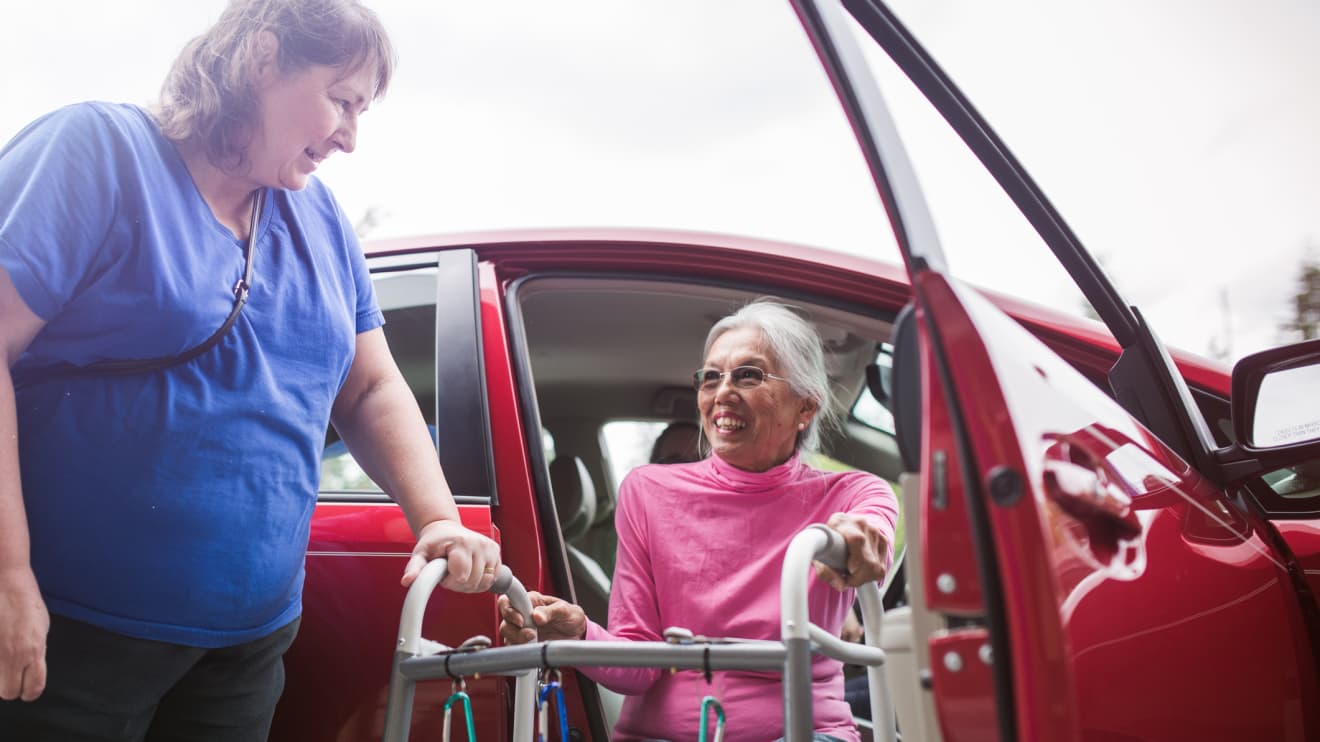Older people often get help from family, friends and strangers. From rides to the doctor to neighborly check-ins during a heat wave, seniors may feel grateful for such acts of kindness.
People of all ages struggle to accept help with grace. With older folks, embarrassment or resentment about assumptions around their physical and mental deterioration can stymie their efforts to convey gratitude.
If they’re unaccustomed to being dependent on others (“I hate not driving anymore!”), they may mutter their thanks with outright discomfort and even a hint of hostility. Or they might skip the “thank you” altogether.
So what’s the best way for retirees to respond to others’ thoughtful acts?
Obviously, it starts with expressing thanks. But there’s a right and wrong way to do that.
“What people want to hear is an authentic thank you,” said Diane Gottsman, an etiquette expert and founder of The Protocol School of Texas. “It takes some thought and finesse.”
Rather than just blurt out your thanks, set the stage. Make eye contact and convey your gratitude with heartfelt gusto.
Gottsman offers this example:
Thank you for driving me to the doctor. It means so much to me. You’re so kind to do this.
“Don’t assume they know you’re grateful,” she added. “We all want to be acknowledged when we go out of our way for someone. Knowing it makes a difference feels good.”
If the same person repeatedly assists you (such as a neighbor or volunteer), the challenge becomes finding fresh ways to communicate your appreciation. While saying thanks never gets stale, there are ways to inject it with new meaning each time you say it.
For instance, tie your thanks to the specific situation. Examples:
Thank you for coming over on short notice to fix this faucet. I could’ve gotten dehydrated if it weren’t for you!
I know how busy you are, so it’s especially nice that you did this for me. Thank you for finding the time to help me.
“If you can, vary your thanks,” Gottsman said. “Show interest in them and have a real conversation.”
In addition, use nonverbal cues that accentuate your gratitude. Aside from looking the giver in the eyes, smile and strike an open, happy facial expression. Be still and concentrate on what you’re saying so that it sinks in.
“We’re always hustling around, so when you say thanks, stop all motion and movement,” said Elaine Swann, an etiquette expert who runs The Swann School of Protocol in Carlsbad, Calif. “It underscores what you’re saying and makes it more powerful in the moment. That’s better than saying thanks as you’re opening the door to get out of the car.”
Some older people weren’t raised to express appreciation. It’s foreign to them. Or if they do it, they mess it up.
If you’re not at ease expressing thanks, keep it simple. Feel the emotion behind what you’re saying so that you speak more emphatically. And avoid sending indirect or roundabout messages of gratitude such as:
You’re probably tired of driving this old lady around. Now you can enjoy the rest of the day.
It’s nice of you to do this for me. I know it’s not much fun.
When you make such statements, you put givers in an awkward position. They may reflexively deny that they mind helping you. In effect, your stab at thanks forces them to mop up after your misguided comments.
“What’s said can be lost in translation,” Swann warned.
Beyond verbalizing your thanks, there are extra steps you may want to take. Writing a brief thank-you note can provide another avenue for conveying your feelings.
For particularly selfless or repeated acts of kindness, you might want to give a gift. Again, there’s a right and wrong way to do that.
Imposing your hobby or interest on others in the form of a gift may not have the desired impact. If you love BritBox and give a subscription to a teen that prefers the Marvel cinematic universe, your gift can fall flat.
“It’s better to find out milestones in their life—birthdays, anniversaries, special occasions—and give them a small gift around that,” Swann said. “If they love hosting Thanksgiving, maybe give them oven mitts or tea towels” that celebrate their favorite holiday.
Customizing a gift shows that you listen to others and remember what matters most to them. This affirms them while signaling your appreciation.







